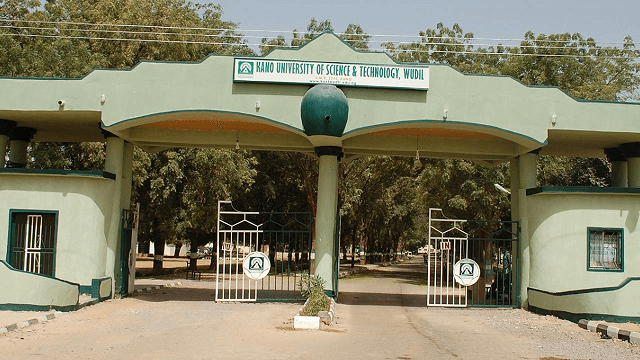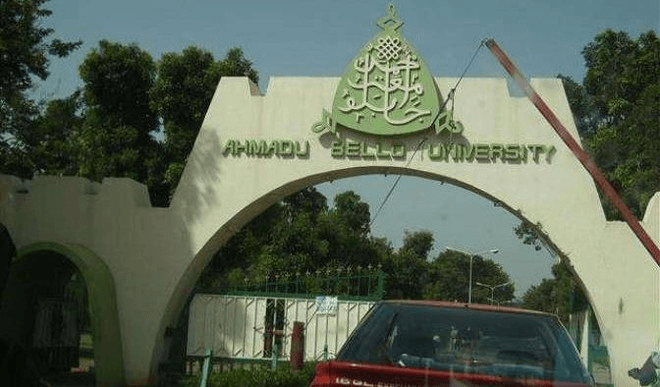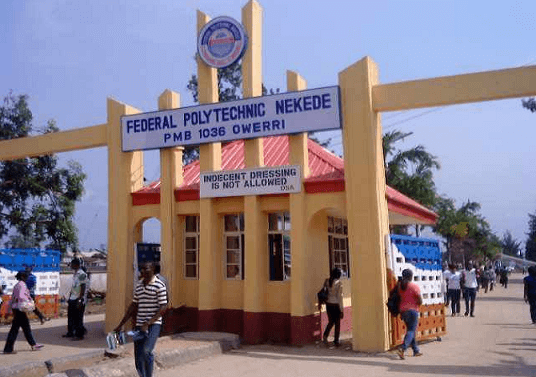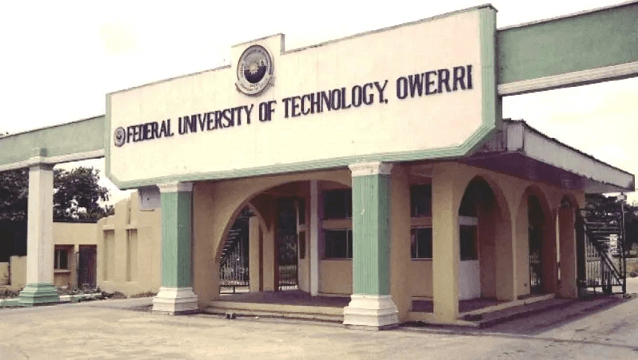Kano State University of Science and Technology, Wudil (KUST) started out as “Kano University of Technology” (KUT) back in 2001. This University of Science and Technology is located in Wudil, a popular Local Government in Kano State. The university was officially renamed Kano University of Science and Technology in 2005 in conformity to the Gazette laws of the University. The institution is a member of the Association of Commonwealth Universities.
Although they started with just 2 faculties, the growing university now boasts of six Faculties (Faculty of Agriculture and Agricultural Technology (FAAT); Faculty of Computing and Mathematical Sciences (FACMS); Faculty of Earth and Environmental Sciences (FAEES); Faculty of Engineering (FAENG); Faculty of Sciences (FASSE) and Faculty of Sciences and Technical Education (FASTE)).

The University currently has 10 institutes. They also run IJMB and remedial sciences under the Directorate of Institute and Continuing Education. The most amazing fact about this institution is how they have attracted young people from all over the country. The school currently boasts of over 15,000 students, a number that is highly impressive, given it was established less than 18 years ago.
The Kano State University of Science and Technology may not be among the most popular Universities in Nigeria, but it remains one of the best in the country. Although debatable, it is believed that education in the Northern part of Nigeria has not been on the high for a long time. The issue is surely not because of lack of standard educational institutions in the area. In fact, one of the best universities in the country is located at the heart of Northern Nigeria and the establishment of KUST in Kano State only confirms the interest of the Federal and State Government in promoting education in the region.
Since its establishment in 2001, this University of Science and Technology has made a huge progress in its development, boasting of high calibre lecturers and academic and non-academic staff in its rank. Science and Engineering students will appreciate the rising institution more because of its well-equipped laboratories and general facilities. While the school’s location has only helped its popularity in the northern part of the country, its fast academic calendar and standard learning culture has made the university one of the most sort after state institutions in Northern Nigeria. The institution has drawn a well-deserved praise from all over the country for its academic standard and overall learning culture.
Now the question is; how much do the students pay as school fees? This article answers that. We will take a look at how much the students in this University pay as tuition, categorizing them according to departments. It should be noted that though some departments pay similar tuition fees, the departmental registration charges vary.
Kano University of Science and Technology School Fees
Here’s breakdown of school fees paid by undergraduates of various departments in the Kano University of Science and Technology.
Department of Agricultural Science Education
Indigene: N22, 800
Non-Indigene: N50, 800
Foreign Student: N80, 800
Department of Agricultural
Indigene: N22, 800
Non-Indigene: N50, 800
Foreign Student: N80, 800
Department of Architecture
Indigene: N22, 800
Non-Indigene: N50, 800
Foreign Student: N80, 800
Department of Biochemistry
Indigene: N22, 800
Non-Indigene: N50, 800
Foreign Student: N80, 800
Department of Biology
Indigene: N22, 800
Non-Indigene: N50, 800
Foreign Student: N80, 800
Department of Chemistry
Indigene: N22, 800
Non-Indigene: N50, 800
Foreign Student: N80, 800
Department of Civil Engineering
Indigene: N22, 800
Non-Indigene: N50, 800
Foreign Student: N80, 800
Department of Computer Science
Indigene: N22, 800
Non-Indigene: N50, 800
Foreign Student: N80, 800
Department of Education and Biology
Indigene: N22, 800
Non-Indigene: N50, 800
Foreign Student: N80, 800
Department of Education and Chemistry
Indigene: N22, 800
Non-Indigene: N50, 800
Foreign Student: N80, 800
Department of Education and Geography
Indigene: N22, 800
Non-Indigene: N50, 800
Foreign Student: N80, 800
Department of Education and mathematics
Indigene: N22, 800
Non-Indigene: N50, 800
Foreign Student: N80, 800
Department of Education and Physics
Indigene: N22, 800
Non-Indigene: N50, 800
Foreign Student: N80, 800
Department of Electrical Engineering
Indigene: N22, 800
Non-Indigene: N50, 800
Foreign Student: N80, 800
Department of Food Science and Technology
Indigene: N22, 800
Non-Indigene: N50, 800
Foreign Student: N80, 800
Department of Geography
Indigene: N22, 800
Non-Indigene: N50, 800
Foreign Student: N80, 800
Department of Geology
Indigene: N22, 800
Non-Indigene: N50, 800
Foreign Student: N80, 800
Department of Mathematics
Indigene: N22, 800
Non-Indigene: N50, 800
Foreign Student: N80, 800
Department of Mechanical Engineering
Indigene: N22, 800
Non-Indigene: N50, 800
Foreign Student: N80, 800
Department of Microbiology
Indigene: N22, 800
Non-Indigene: N50, 800
Foreign Student: N80, 800
Department of Physics
Indigene: N22, 800
Non-Indigene: N50, 800
Foreign Student: N80, 800
Department of Statistics
Indigene: N22, 800
Non-Indigene: N50, 800
Foreign Student: N80, 800
Department of Urban and Regional Planning
Indigene: N22, 800
Non-Indigene: N50, 800
Foreign Student: N80, 800.
See school fees of other institutions in Nigeria
- Igbinedion University School Fees (2024)
- FUTO School Fees – 2024 Session
- Kwara State Polytechnic School Fees (2024)
- Federal University Lokoja School Fees (2024)
- FCE Kano School Fees (April 2024)
- American University of Nigeria School Fees (2024)
- FUTA School Fees for 2024 Session
- UNILAG Postgraduate School Fees (2024)
- Covenant University School Fees (2024)
- Bowen University School Fees (2024)
- Kaduna State University School Fees (2024)
- Nasarawa State University School Fees (2024)
- UNIPORT School Fees in 2024
- University of Abuja School Fees (2024)
- UI DLC School Fees (2024)
- Lead City University School Fees (2024)
- List of Polytechnics in Nigeria & Their School Fees (2024)
- Olabisi Onabanjo University School Fees (2024)
- 10 Cheapest Federal Universities in Nigeria (2024)
- National Open University of Nigeria School Fees (2024)
- Joseph Ayo Babalola University School Fees & Courses (2024)
- Benue State University School Fees (2024)
- UNIBEN Postgraduate School Fees (2024)
- NDA School Fees (April 2024)
- UNILORIN School Fees (2024) – Undergraduate & Postgraduate
- Federal University Gashua School Fees & Courses (2024)
- Afe Babalola University School Fees (2024)
- Bingham University School Fees ([year})
- Osun State University School Fees (2024)
- UNILAG School Fees for Undergraduates (2024)
- Ekiti State University School Fees (2024)
- UNILAG Part Time School Fees (2024)
- Cotonou Universities & School Fees (2024)
- Maritime Courses in Nigeria & Prices (April 2024)
- Babcock University School Fees (2024)
- LAUTECH School Fees for Undergraduates & Courses (2024)
- Kano State University (KUST) School Fees in 2024
- Lagos State Polytechnic School Fees (2024)
- Lagos Business School Fees in 2024
- School Fees of Private Universities in Nigeria (2024)
- University of Ibadan School Fees (2024)
- OAU School Fees (2024) for Undergraduates & Postgraduates
- Private Universities in Abuja & their School Fees (2024)
- UNIZIK Postgraduate School Fees (2024)
- Best State Universities in Nigeria (April 2024)
- Ondo State University of Medical Sciences School Fees (2024)
- Schools of Nursing in Nigeria & Their School Fees (2024)
- Ebonyi State University School Fees (2024)
- Lagos State University School Fees (2024) for Undergraduates
- Adeleke University School Fees (2024)
- UNN Postgraduate School Fees in 2024
- ABU Zaria School Fees & Registration Fees (2024)
- Cost of Master’s Degree in Nigerian Universities (2024)
- University of Nigeria School Fees (2024)
- Best Boarding Schools in Nigeria & School Fees (2024)
- FUOYE School Fees – 2024 Session
- Federal Polytechnic Nekede School Fees (2024)
- Caleb University School Fees (2024)
- Sokoto State University School Fees (2024)






Good afternoon sirs, I would like to school at kano university but i dont know how. Please let’s show me the way.
Hyacinthe Théodore Chatue from Yaoundé Cameeoon
Can we do part payment??
Good day sir, I choose kust as my second choice can I get admission?
If somebody chose kust as his or her second choice will he or she have the admission or what.
Please can I be adimmted with 157 in Kano university